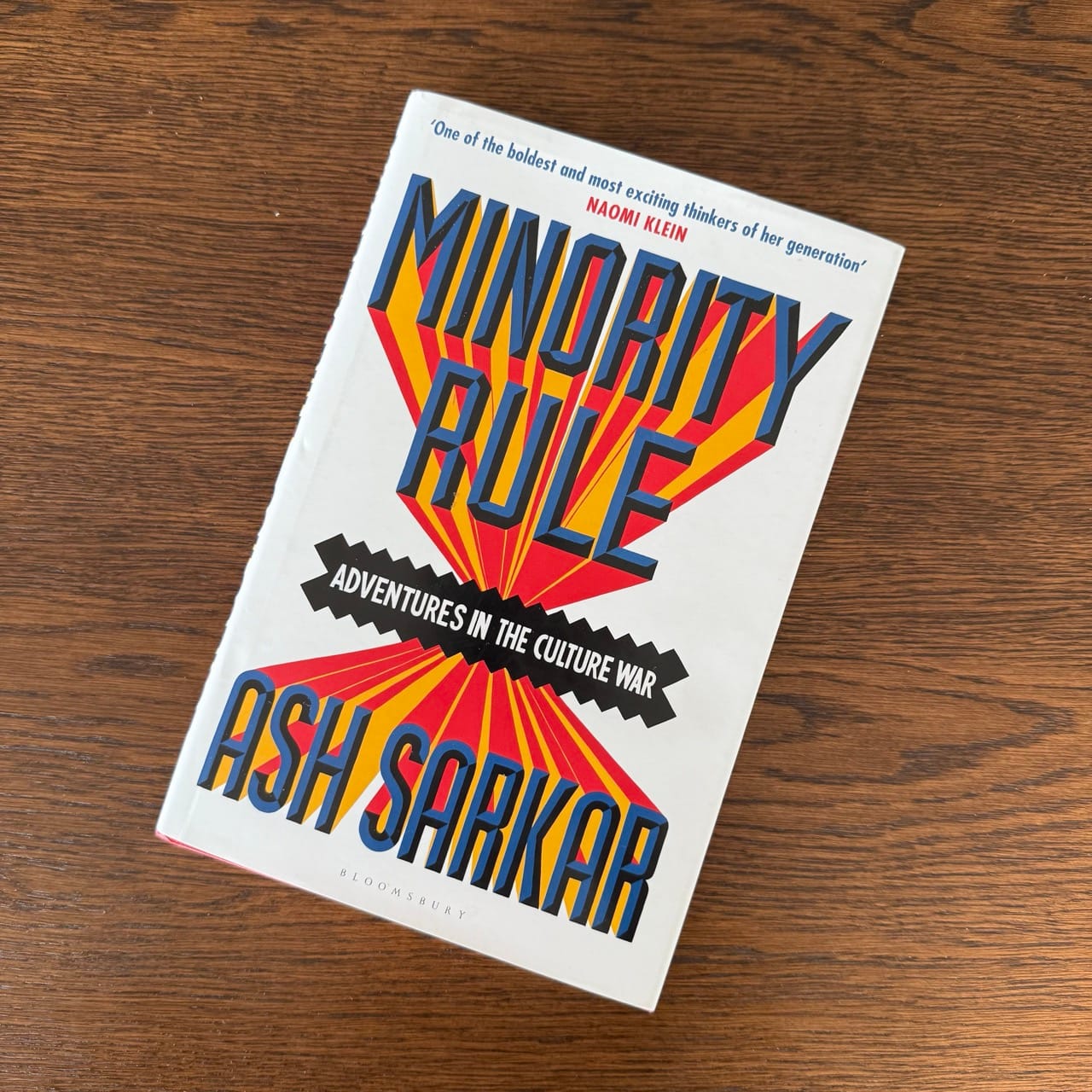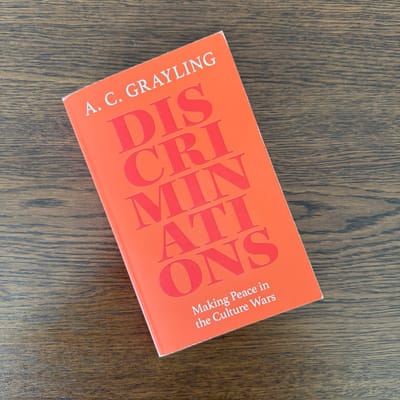Minority Rule by Ash Sarkar

Ash Sarkar’s Minority Rule is not a quiet book.
It’s sharp, fast-paced and deliberately provocative—cutting through the polite discomfort of British liberalism with clarity and purpose.
High-profile commentator and academic, Sarkar uses her platform to interrogate the limitations of contemporary “progressive” politics and argue for a new kind of solidarity.
This isn’t a book about incremental change. It’s about asking different questions entirely.
Central Thesis
- Sarkar argues that the UK is governed by a “minority”—not of marginalised groups, but of elites who manipulate cultural divisions to maintain power.
- The book contends that culture wars distract the public from systemic inequalities, only truly benefiting those in positions of wealth and authority.
Key Themes
Culture Wars as a Distraction
- Media and political elites amplify cultural conflicts (e.g., immigration, gender identity) to divert attention from economic disparities.
- This strategy keeps the working class fragmented and less likely to unite against shared societal & economic challenges.
The Real “Minority Rule”
- Contrary to an often touted narrative suggesting minorities wield disproportionate influence, Sarkar says that true minority rule is exercised by Neoliberalist financial and political elites.
- These elites use cultural divisions to obscure their role in perpetuating inequality.
Identity Politics
- Sarkar critiques the left’s focus on identity politics (there has been a lot of this in the recent UK and wider debates about trans rights), suggesting it has led to internal divisions and detracted from broader class-based solidarity.
- Sarkar calls for a reorientation towards collective action that addresses the systemic issues affecting all disadvantaged groups.
Media Role in Shaping Discourse
- The book examines how media outlets (including social media companies), driven by profit motives, sensationalise cultural issues, thereby reinforcing divisions and distracting from substantive policy discussions.
- Sarkar highlights the transformation of journalism into a click-driven industry that prioritises outrage over informative content.
My Review
Minority Rule is an interesting analysis of how cultural conflicts are leveraged to maintain & grow existing power structures in the UK and beyond. The insights challenged me to reconsider the sources of societal division and the beneficiaries of such discord.
The critique of both right-wing manipulation and left-wing infighting provides a balanced opinion that encourages introspection across the political spectrum. By highlighting the role of (social and mainstream) media in perpetuating these divisions, Sarkar underscores the need for critical & curated media consumption and a focus on real issues.
The book’s strength lies in its exploration of Sarkar’s personal evolution, offering a relatable narrative that underscores the complexities of political engagement in the digital age.
I found the book heavy going in places - with multiple examples of points being made (and lots of references to carry on researching). The overarching message remains clear and impactful.
Minority Rule is a thought-provoking contribution to contemporary political discussion, and it pushed me to look beyond surface-level conflicts and think about some of the underlying structures that shape society.
I saw this book as a good follow up to the George Monbiot book - The Invisible Doctrine - about the rise and history of Neoliberalism that I read in 2024.







Member discussion